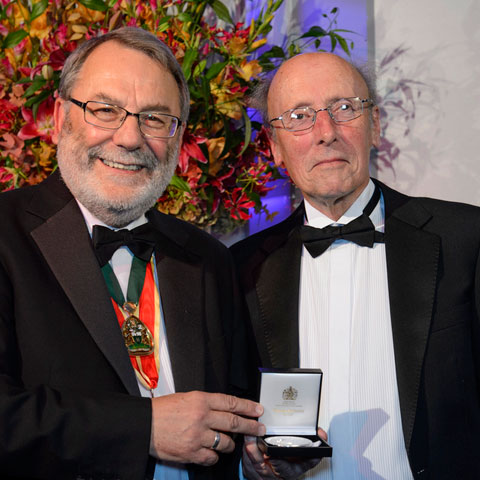Physicist wins Hoyle medal for work on origins of the Universe
10/11/2012 00:00:00

Emeritus Professor David Lyth was presented with the Hoyle medal at an awards ceremony at the Institute of Physics in London.
He said: “For me, cosmology is part of our age-old desire to understand how things began and (since the time of Newton) the hope that physics can give a description of the world that is in some sense complete. The progress since I began research in 1962 has been truly astonishing, which makes me feel incredibly lucky to have been alive at this particular time.”
Professor Lyth has been responsible for many of the key advances in the theory of inflation, which is a central plank of modern cosmology. This idea that the Universe is expanding helps explain the origin of structures in the Universe like galaxies.
He has devised many of the analytical tools that are now widely used by cosmologists and his methods are now the standard language for those who compare observational data obtained by the Cosmic Background Explorer (COBE) and the Wilkinson Microwave Anisotropy Probe (WMAP) with the predictions of inflationary theory.
The judges said:”His work is always characterised by an incisive clarity. Although mathematically sophisticated, it always maintains contact with observation.
"While much work on inflation has been purely phenomenological, David has linked cosmology with fundamental physics, particularly extensions of the Standard Model.”
In 2000, together with Andrew Liddle, David Lyth published a textbook on cosmological inflation and large-scale structure that has become the standard reference and an essential resource for everyone in the field. They followed this up in 2009 with the first graduate-level textbook devoted specifically to the primordial density perturbation.
“Both books exemplify David's dedication to accurate scholarship and his ability to make complex concepts accessible.”